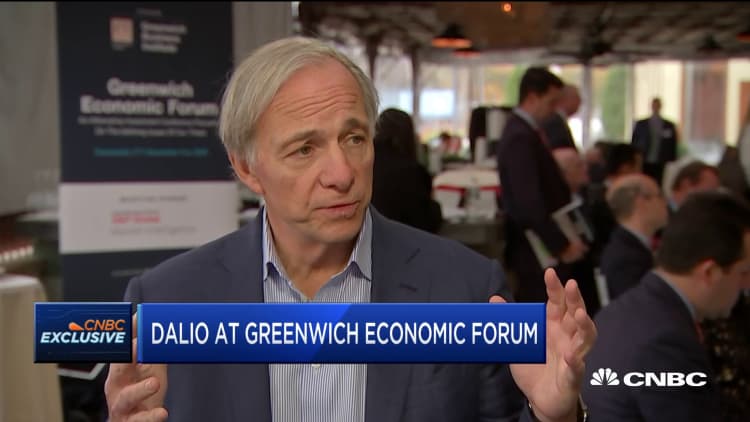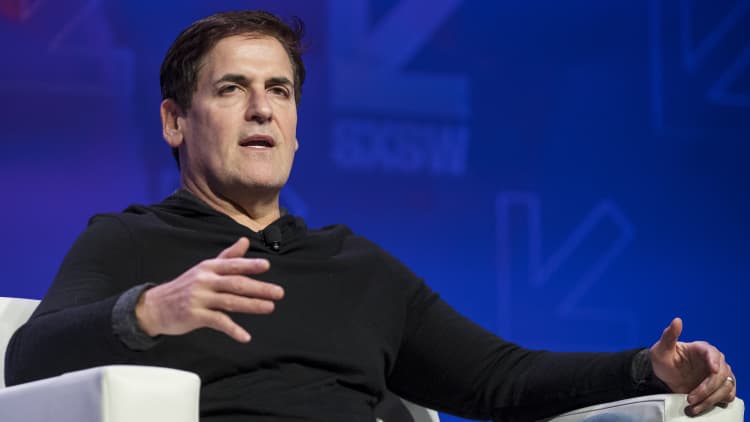Bill Gates — the second richest person in the world with a current net worth of $108.8 billion, according to Forbes — says his extreme wealth is not fair.
"The distance between top and bottom incomes in the United States is much greater than it was 50 years ago," Gates wrote in a blog post reflecting on 2019 published Tuesday. (Indeed, American income inequality is at its highest level in decades, according to U.S. Census Bureau's Gini index.)
"A few people end up with a great deal—I've been disproportionately rewarded for the work I've done—while many others who work just as hard struggle to get by," he wrote.
To solve the problem, Gates said the U.S. government should raise taxes that affect the wealthy.
"I'm for a tax system in which, if you have more money, you pay a higher percentage in taxes. I think the rich should pay more than they currently do, and that includes Melinda and me," Gates wrote, referring to his wife.
Specifically, he said there should be a higher capital gains tax (a tax on money made on investments), which would disproportionately affect the wealthy. None of the richest people in the world have made their fortunes solely through a salaried job, and for that reason Gates believes the government "should shift more of the tax burden onto capital" rather than labor.
"I don't see any reason to favor wealth over work the way we do today," he wrote. It's "the clearest evidence I've seen that the system isn't fair," he said.

Billionaire tech entrepreneur and investor Mark Cuban has also highlighted how the difference between the investor class and paid labor is a factor in the wealth gap.
"If someone is only going to be paid by the hour...they're always going to fall behind," Cuban told Recode Decode in May. "And income distribution is … [the] disparity is going to get wider and wider."
While Cuban has called paying taxes "patriotic," he also suggests founders and owners should distribute stock in the company to employees to bring them into the investor class.
"We as entrepreneurs have got to make a point to give stock to everybody that works for us. Period. End of story. No exceptions, because that's the only way people are going to get any type of equity appreciation."
Cuban said he did just that with online streaming service Broadcast.com, which Cuban co-founded and sold to Yahoo in 1999 for almost $6 billion in stock. "Three hundred out of 330 [Broadcast.com] employees became millionaires" at the time of its sale, Cuban previously told CNBC Make It.
Gates also said in Tuesday's blog post that the U.S. should have a higher estate tax, which would affect the rich.
"A dynastic system where you can pass vast wealth along to your children is not good for anyone; the next generation doesn't end up with the same incentive to work hard and contribute to the economy," Gates said.
Gates said it's one of the reasons he co-founded The Giving Pledge with Warren Buffett (who has also said the rich should pay higher taxes). The Giving Pledge invites billionaires to commit to giving away the majority of their money to charity, and both the Gates and Buffett have made the pledge.
"I know well many of the mega-rich and, by and large, they are very decent people. They love America and appreciate the opportunity this country has given them. Many have joined the Giving Pledge, promising to give most of their wealth to philanthropy," Buffett wrote in The New York Times in 2011.
"Most wouldn't mind being told to pay more in taxes as well, particularly when so many of their fellow citizens are truly suffering," Buffett added. "My friends and I have been coddled long enough by a billionaire-friendly Congress. It's time for our government to get serious about shared sacrifice."
Fundamentally, whether through taxes or philanthropy, extraordinary wealth needs to be reinvested in society, according to Gates.
"Melinda and I believe that driving progress is wealth's highest purpose," Gates wrote in Tuesday's blog post. "Our wealth comes with an obligation to give back to society, and in 2020, we're committed to continue living up to that obligation: through our taxes, through our foundation, and through our personal giving."
See also:
What billionaires said about wealth inequality and capitalism in 2019
Billionaire Warren Buffett says 'the real problem' with the US economy is people like him

Like this story? Subscribe to CNBC Make It on YouTube!


